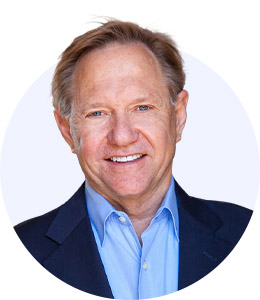I am fortunate to hear from a variety of people each week sharing questions as well as their thoughts on different topics. Having my own companies, I am in the field each week experiencing the same situations they do. I received a call from a CEO of a company. He said he reached out to me because he felt I would have an answer to the situation he was in. After he explained, I said, “I am facing the same situation myself and have the same question you have. Please keep calling people, and when you find out a solution, will you send it my way?” He laughed and said, “I already feel better knowing you do not know either.”
I was on another call with an owner of a company that employs about 50 people. He was sharing frustrations with some of the members of his team. The issue was their inability to just say, “I don’t know.” We discussed that self-awareness is a good trait; however, it can be elusive. The most concerning people in an organization are those who do not know what they do not know. This can lead to mistakes that can put others at risk. Yet saying, “I don’t know,” can be scary. It can cause one to wonder, What will people think if I say that? Will people think less of me? Will it position me poorly for the future? Should I have known this? Did I miss something?
There are those situations in which a person should know. For example, a leader is expected to have a grasp on certain skills, like how to run a good meeting, or set goals for employees, or hold performance reviews. But many times, especially when someone is new in a role, there will be times when the answer is, “I don’t know,” or, “I’m not sure. Let me do some research and I will get back to you.”
This was a hard lesson for me. I felt that if I said, “I don’t know,” I would appear stupid. So, if I did not know, I would fumble to come up with an answer. Then I became close with a person who made me feel safe sharing concerns. He worked somewhere else. He was older and wiser than me. During a conversation, I asked him what he does when his boss asks him a question and he does not know the answer. He responded, “I say, ‘I don’t know.’” I was taken aback. “That’s it?” I asked. “What does your boss say?” He said that it usually went well; they would discuss the situation and move on to solutions.
A few weeks later, I was in a meeting with my boss and coworkers. My boss called on me to get my thoughts on an issue. In the past, I would have babbled something. This time I said, “I do not know.” I then waited for calamity to happen, for the world to shake. Instead, my boss said, “Okay,” and we moved on. I sat there thinking, I could have done this in the past, versus making up stuff.
That lesson is with me today. When I am working with organizations and giving keynotes, questions are asked. If I know the answer, I provide it. If not, I do one of two things. I say, “I do not know. What does the group think?” Usually, the answers are in the room. Another response, particularly if in a one-on-one meeting or communicating via email, is, “I do not know. However, let me do some research and get back to you.” The response is usually, “That will be great.”
A close cousin to “I don’t know” is “I missed on that.” As I have written in the past, this feeling some have that they need to be perfect is a detriment to personal growth. In a situation when someone is covering up versus just saying, “I missed on that—my mistake,” most experienced leaders will catch it. They will wait till the right time to point it out. They are not fooled.
Here is an example. A group is working on a task. They have received suggestions and questions from the senior leader regarding the task. After a very productive meeting, a person from the group working on the project sends the plan to the senior leader. In reading the plan, the senior leader sends a note to the group leader saying excellent work. However, the senior leader noticed one of the suggestions is missing and asks about it. There are several potential responses. One can be why the group feels the suggestion is not in the plan. That is okay. Another can be, “Sorry, we missed that one and will add it to the plan.”
Trust me, both answers work. The senior leader received this response, “Yes, we discussed that.” The way it was described was, “We are on it.” However, it was not in the plan. It came across as more of a cover-up type response. Another response that appears to be a cover-up is, “Yes, I thought of that.” Then the senior leader’s thought will be, What are you doing about it?
The top leaders I know are okay with someone not knowing. In fact, it is a relief. They want to know whether or not the person knows such items. They know that person did not achieve their position without being smart. It is okay to say, “I missed it. And here is what I will do.”
Finally, starting with “I missed on that one” can change the dynamics of the conversation. It defuses things, and the conversation feels different. It gets people out of defensive mode and leaning in to fix the problem.
A couple of quick tips:
- Understand that not knowing is part of development. More will be revealed as one gets more knowledge and experience. Most of the time, “I don’t know” is a satisfactory answer. It’s also good to add, “Let me find out. I will dig into it and get back with you.” After “I do not know,” a good question to ask is, “What do you think?”
- Do not make things up. This is a deeper issue. It reveals a feeling that “I need to look perfect.” I often think this fear that “If I appear less than perfect, people will think less of me” could go all the way to a person’s upbringing. It is actually the opposite. People respect people who admit mistakes or don’t mind saying, “I don’t know.” This vulnerability leads to deeper relationships.
I have heard many talks over the years. The person who appears perfect does not get many questions, and not many people come up to them after their talk. The person who is authentic, admits mistakes, and shares they are still on this journey ends up with more questions being asked and more people approaching them. It is far better to just share a miss and fix it than to act like it was not a miss when it was. Again, this perfectionism can be so deep it is a good idea to seek professional help to address it.
We are all on this journey, both professionally and personally. The two journeys are integrated. “I do not know” and “I missed on that” free a person up to be comfortable in their own skin. That is a blessing. It attracts others to us, and it is just an easier and better way to live.







